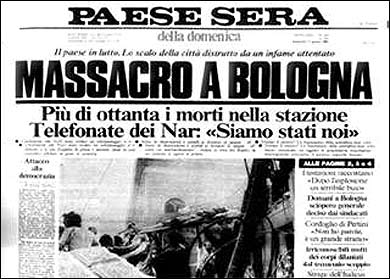
Lily Pad Roll
Journeys to the Outposts of the Empire
By Gaither Stewart
Scheduled for publication by Punto Press, Fall 2012
PREFACE
By Paul Carline

1980: Massacre in Bologna, 85 dead. Like in the attacks in Madrid, the target of the bomb that exploded on August 2nd, 1980, in the train station of Bologna (Italy) was the railroad. On that occasion the attack left 85 people dead and 150 wounded. The bomb was planted in the waiting room of the second-class passengers. It was August and it was an important intersection point of the national railroad traffic. The objective was to kill as many passengers as possible. The target was the common people: Bologna was a bastion of the Italian Communist party. By targeting people at random, the terrorists hoped to stampede the public toward a chronic “state of maximum security.” Sounds familiar?
Lily Pad Roll is the second part of Gaither Stewart’s Europe Trilogy. It was born, so to speak, out of the characters of the first novel, The Trojan Spy. According to its author, there was, to begin with, no intention of writing a trilogy. The Trojan Spy was completed and first published as a stand-alone ‘spy’ novel in 2010, but it seems that both the characters – and the evolving political background – presented cases of “unfinished business” for the author. Although the central character of The Trojan Spy – the Russian double-agent Anatoly Nikitin – was no longer around, having met a violent death on a mountain road in Italy, his ghost hovers over Lily Pad Roll, and his intimate connection with later events continues in the destinies of Elizaveta and Masha.
In his review of The Trojan Spy, Australian novelist Desmond O’Grady writes of Nikitin’s self-appointed mission “to uncover the deadliest of spy rings, the organizers of terrorism”. He observes that “the brutality and menace of terrorism has only increased since spies were supposed to have disappeared with the end of the Cold War, and that much of the world is hostage to a strategy of tension in which terrorism provides the pretext for creations like Homeland Security in the USA”. Continue reading »
